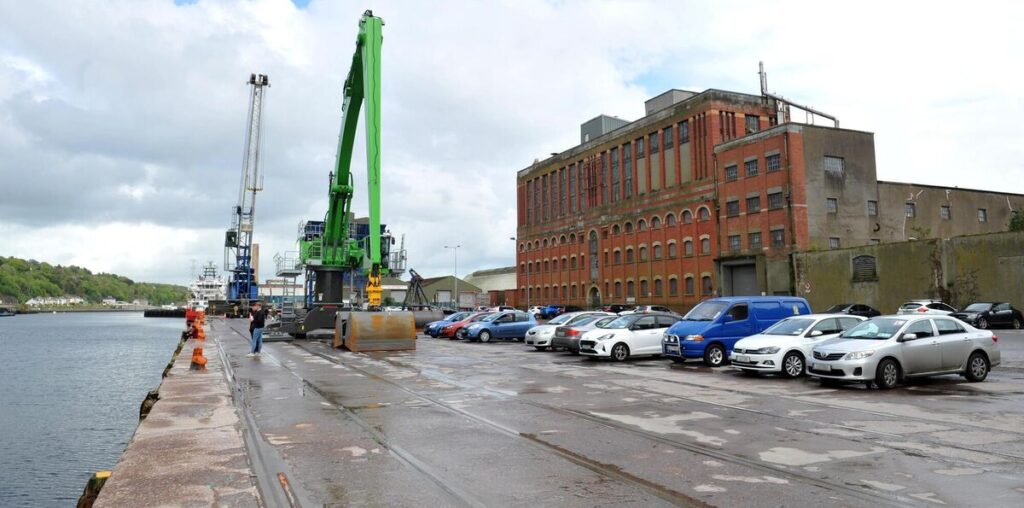
Cork City Coroner has appealed for barriers to be erected to stop people driving over Cork City’s quay walls, as he said 13 people have entered the water in cars at one quay since 2018.
Philip Comyn said there were six attempted suicides at Kennedy Quay in Cork City since 2018, six suicides and one murder.
“In this year alone, I have heard three inquests regarding the quays in Cork,” he said, adding that they included cases where adults entered the water with children in the car.
“Given the number of incidents here over a short period of time, I think it is incumbent on the local authority representatives for these quays, whether it be the Port of Cork or Cork City Council, not only to come up with plans to make these quays safer and to prevent incidents of this nature taking place, but also to ensure the plan is implemented without further delay.”
Mr Comyn gave the warning at a tragic inquest into the death of a 35-year-old Ukrainian father-of-one who drove his Audi into Kennedy Quay on March 2, before 4am.
His car was seen half-submerged at 4.09am by a security worker at the Port of Cork, who raised the alarm.
Dive crews located the vehicle at 8.20am but abandoned its removal as Blackrock rowing club was running time trials in close proximity to the divers’ rescue effort, Sergeant Aisling Murphy said, reading evidence from Garda Richard Caverly.
When the area was cleared of rowers, the vehicle was extracted after 11am on Kennedy Quay.
The man’s body was removed to Cork University Hospital for autopsy.
Pathologist Dr Margot Bolster said no alcohol was found in the deceased’s blood but cocaine and a metabolite of cocaine was found.
The body showed no evidence of trauma but there was a frothy fluid in the windpipe and his lungs were heavy and hyper-expanded, both of which are classically found in drowning deaths, Dr Bolster said.
Cocaine can also hasten death because it can affect the heart, she said.
His cause of death was give as acute cardio respiratory failure due to drowning. Another significant factor was given as cocaine use.
Mr Comyn gave his verdict as suicide and extended his sympathies to the family.
Mr Comyn also reminded people of the dangers of taking recreational drugs.
“This is a very clear example of what can happen. And the devastating effects that can occur.”
The deceased’s wife, speaking in court through an interpreter, said her husband had suffered from depression and had taken some recreational drugs but had continued to work as normal.
But he had previously become paranoid after taking hedonistic drugs, believing people were following him and chasing him when they were not, she said through an interpreter.
The family had moved to Ireland to escape the war in their homeland in March 2023.
Before his tragic death, he had been emotionally agitated that day, his wife told the court.
There were times before his death he did not recognise his wife nor their son.
“I knew it was not good,” she said.
“He said earlier ‘everything will finish soon’.”

